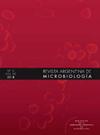Anaerobic digestates in agricultural soils: A systematic review of their effects on antibiotic resistance genes
IF 2.1
4区 生物学
Q4 MICROBIOLOGY
引用次数: 0
Abstract
Tackling the dissemination of antibiotic resistance is one of the main global challenges. Manures from animal production are a recognized source of antibiotic resistance genes (ARGs) and mobile genetic elements (MGEs) requiring appropriate treatment methods. One of the main approaches for manure treatment is anaerobic digestion (AD). Meta-analyses have demonstrated that AD can significantly reduce the load of ARGs. However, antibiotics, ARGs and MGEs still remain in the final product (digestate). A sustainable agricultural use of digestates under the One Health framework requires wide assessments of their effects in the soil resistome. The objective of this review was to present the state of the art of digestate effects on ARGs of agricultural soils, focusing exclusively on digestates from animal manures. A systematic review was conducted. The examination of the resulting literature indicated that although temporal decays are observed for a variety of ARGs in single-application and repeated-applications experiments, for certain ARGs the pre-treatment or control levels are not restored. However, the low number of studies and the heterogeneous experimental conditions preclude a clear understanding of the fate of ARGs in soil and their risk for agroecosystems. The inclusion of multiple MGEs and the assessment of the long-term influence of digestates on soil properties and microbial communities could be keystones for a better understanding of the risks associated with digestate-induced changes in the soil resistome.
农业土壤中的厌氧消化物:系统回顾其对抗生素抗性基因的影响。
应对抗生素耐药性的传播是全球面临的主要挑战之一。动物生产产生的粪便是公认的抗生素耐药性基因(ARGs)和移动遗传因子(MGEs)的来源,需要采用适当的处理方法。厌氧消化(AD)是粪便处理的主要方法之一。元分析表明,厌氧消化可显著减少 ARGs 的负荷。然而,抗生素、ARGs 和 MGEs 仍会残留在最终产品(沼渣)中。要在 "同一健康 "框架下实现沼渣的可持续农业利用,就必须对其在土壤抗性组中的影响进行广泛评估。本综述的目的是介绍沼渣对农业土壤ARGs影响的最新进展,重点关注来自动物粪便的沼渣。我们进行了系统性的回顾。研究结果表明,虽然在单次施用和重复施用实验中观察到了各种 ARGs 的时间衰减,但某些 ARGs 无法恢复到处理前或对照组的水平。然而,由于研究数量少,实验条件不尽相同,因此无法清楚地了解 ARGs 在土壤中的归宿及其对农业生态系统的风险。纳入多个多边环境协定以及评估沼渣对土壤特性和微生物群落的长期影响,是更好地了解沼渣引起的土壤抗性组变化的相关风险的关键。
本文章由计算机程序翻译,如有差异,请以英文原文为准。
求助全文
约1分钟内获得全文
求助全文
来源期刊

Revista Argentina de microbiologia
MICROBIOLOGY-
CiteScore
3.30
自引率
0.00%
发文量
46
审稿时长
>12 weeks
期刊介绍:
La Revista Argentina de Microbiología es una publicación trimestral editada por la Asociación Argentina de Microbiología y destinada a la difusión de trabajos científicos en las distintas áreas de la Microbiología. La Asociación Argentina de Microbiología se reserva los derechos de propiedad y reproducción del material aceptado y publicado.
 求助内容:
求助内容: 应助结果提醒方式:
应助结果提醒方式:


